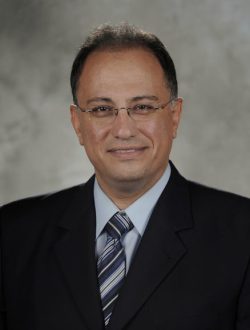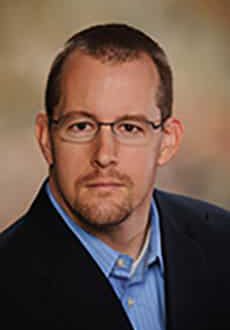Summary
Numerous inkjet-/3D-printed flexible antennas, RF electronics and sensors fabricated on paper and other polymer (e.g.LCP) substrates offer a system-level solution for ultra-low-cost mass production of Millimeter-Wave Modules for Communication, Energy Harvesting and Sensing applications. Prof. Tentzeris will explore:
- State-of-the-art area of 3D/inkjet-printed fully-integrated wireless sensor modules on paper or flexible substrates and demonstrate the unique capabilities of additive manufacturing for the fully 3D integration of arbitrary-shape wireless sensors with RF systems on virtually every substrate (glass, paper, plastic, …)
- The first realizations of 4D (morphing/shape changing/origami) multilayer RF/microwave structures, that could potentially set the foundation for the truly convergent wireless sensor ad-hoc networks of the future with enhanced cognitive intelligence and “rugged” packaging.
- Power sources of “near-perpetual” RF modules, including flexible miniaturized batteries as well as energy harvesting approaches involving thermal, EM, vibration and solar energy forms.
- mmW wearable (e.g. biomonitoring) antennas and RF modules, as well as the first examples of the integration of inkjet-printed nanotechnology-based (e.g.CNT) sensors on paper and organic substrates for Internet of Things (IoT), 5G and autonomous vehicles applications.
- Newly developed 3D ramp interconnects and on-chip/on-package printed RF components for further miniaturization and enhanced reliability. It has to be noted that the paper will review and present challenges for inkjet- and 3D-printed organic active and nonlinear devices and printable transparent RF electronics as well as future directions in the area of environmentally-friendly (“green”) RF electronics and “smart-skin’ conformal sensors.
Attendance is free. To access the event please register.
Note: By registering for this webinar you understand and agree that IEEE may share your contact information with the sponsors of this webinar and that both IEEE and the sponsors may send email communications to you in the future.
Speakers

Professor Tentzeris graduated from Ionidios Model School of Piraeus, receiving his degree in Electrical Engineering and Computer Science from the National Technical University in Athens, Greece, and then M.S. and Ph.D. degrees in Electrical Engineering and Computer Science from the University of Michigan, Ann Arbor.

Dr. Michael C. Hamilton is an Associate Professor in the Electrical and Computer Engineering Department at Auburn University and the Assistant Director of the Alabama Microelectronics Science and Technology Center.